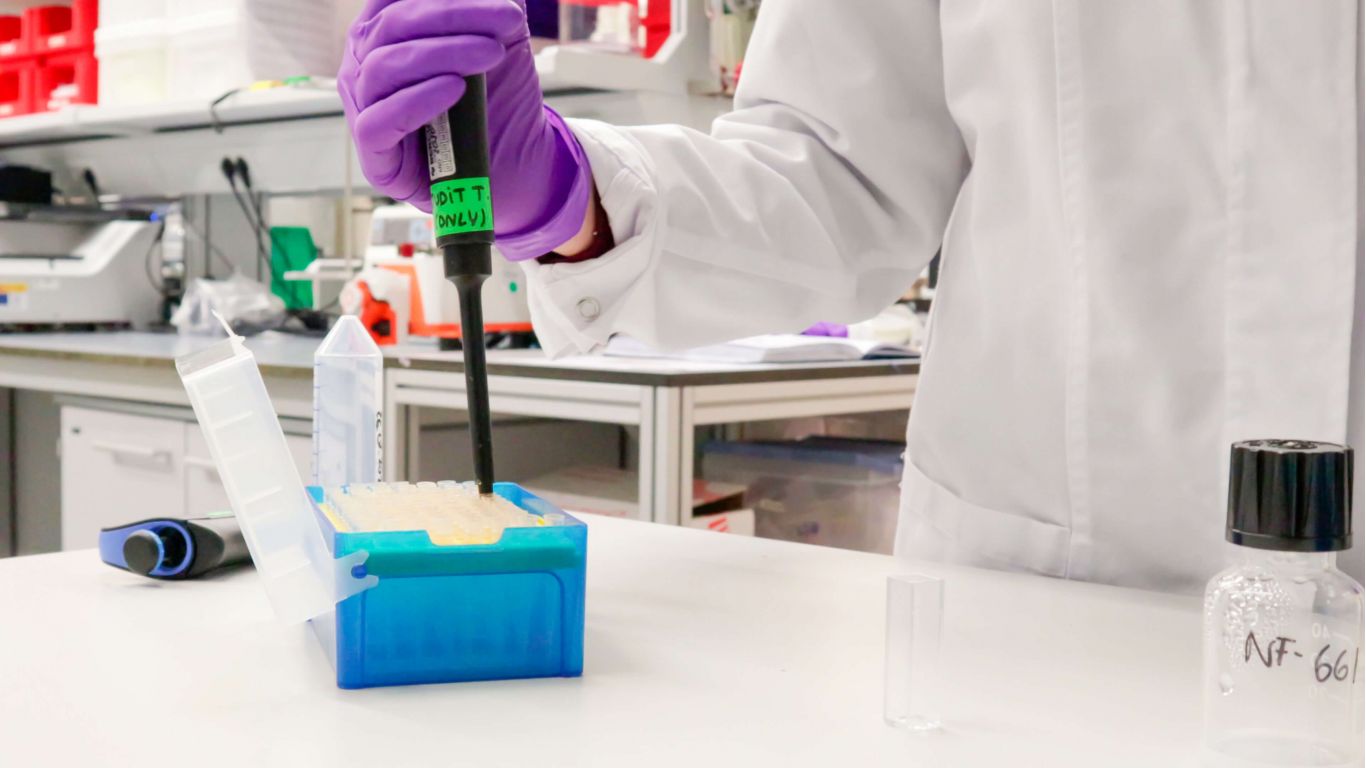A new european infrastructure will facilitate the transfer of nano-pharmaceuticals from the lab to the clinic
Launch of the cross-european PHOENIX project, which will provide a new infrastructure available to research laboratories, SMEs and start-ups to facilitate the transfer of nano-pharmaceuticals from the laboratory to clinical practice. PHOENIX will have a duration of 4 years and a total budget of 14.45 million euros. Two CSIC Institutes, ICMAB (CSIC) and INMA (CSIC-UNIZAR), and one CSIC spin-off, Nanomol Technologies, participate in the project, will count with the expertise of NANBIOSIS unit 6 (from CIBER-BBN and ICMAB-CSIC), led by Nora Ventosa.
PHOENIX is an innovation project funded by EU’s Horizon2020 Framework Programme aimed to provide services for the development, characterization, testing, safety assessment, scale-up, good-manufacturing-practice (GMPs) production and commercialization of nano-pharmaceuticals from the lab to the market, making them available to SMEs, startups, research laboratories and interested users.
A total of 11 partners from academia and industry located all across Europe have joined forces to create this “Open Innovation Test Bed” for nano-pharmaceuticals. Two CSIC institutes participate in this initiative: the Institute of Nanoscience and Materials of Aragón (INMA, CSIC-UNIZAR) and the Institute of Materials Science of Barcelona (ICMAB, CSIC), both groups members of the CIBER-BBN. Nanomol Technologies S.L., a growing SME spin-off from ICMAB-CSIC, is also partner of the project.
PHOENIX, which is coordinated by Luxembourg Institute of Science and Technology (LIST), supported by the german SME MyBiotech in scientific coordination, will have a duration of 48 months starting on 1 March 2021 with a total budget of €14.45 million and a requested EU contribution of €11.1 million.
Open Innovation Test Bed for nano-pharmaceuticals
Nano-pharmaceuticals are drugs that use nanotechnology (the use of matter on an atomic, molecular, and supramolecular scale for industrial purposes) in some form to achieve enhanced drug products. For example, contrast agents are used in the form of nanoparticles rather than a molecule because nanoparticles are more stable and can stay longer in blood. Another example could be that a nanoparticle is used as a nanocarrier to encapsulate the drug substance and protect it while enhancing adsorption and biodistribution, or to target the drug to specific tissues or organs.
Nano-pharmaceuticals have the potential to drive the scientific and technological uplift, offering great clinical and socioeconomic benefits to society in general, industry, and patients. Nevertheless, affordable and advanced testing, manufacturing facilities and services for novel nano-pharmaceuticals are main prerequisites for successful implementation of these advances to further enhance the growth and innovation capacity.
The establishment of current good manufacturing practices (GMPs) in nano-pharmaceutical production on a large scale is the key step to successfully transferring nano-pharmaceuticals from bench to bedside (from the lab to the patients). Due to the lack of resources to implement GMP manufacturing on site, the upscaling and production of innovative nano-pharmaceuticals is still challenging to the main players of EU nanomedicine market, start-ups and SMEs. To allow a successful implementation of nano-pharmaceuticals in the nanomedicine field, there is an urgent need to establish a science and regulatory-based Open Innovation Test Bed (OITB).
PHOENIX: key project in taking nano-pharmaceuticals from bench to bedside
The PHOENIX project aims to enable the seamless, timely and cost-friendly transfer of nano-pharmaceuticals from lab bench to clinical trials by providing the necessary advanced, affordable and easily accessible PHOENIX-OITB which will offer a consolidated network of facilities, technologies, services and expertise for all the technology transfer aspects from characterisation, testing, verification up to scale up, GMP compliant manufacturing and regulatory guidance.
PHOENIX-OITB will develop and establish new facilities and upgrade existing ones to make them available to SMEs, starts-up and research laboratories for scale-up, GMP production and testing of nano-pharmaceuticals, either based on small chemical molecules or biologicals The services and expertise provided by the OITB will include production and characterisation under GMP conditions, safety evaluation, regulatory compliance and commercialisation boost.
“Our goal is to create a new infrastructure at European level available for all research centres and laboratories, SMEs and start-ups, to facilitate the transfer of nano-pharmaceuticals from the lab to the clinical practice” explains Jesús Martínez de la Fuente, INMA-CSIC-UNIZAR researcher.
“The role of INMA and ICMAB is to generate new services, open to the public, to characterize nano-pharmaceuticals in rder to ensure their quality” affirms Nora Ventosa, ICMAB-CSIC/CIBER-BBN researcher and Director of NANBIOSIS unit 6 Biomaterial Processing and Nanostructuring Unit.
Project partners
The 11 partners that form the PHOENIX consortium are the Luxembourg Institute of Science and Technology (LIST, Luxembourg), MyBiotech (SME from Germany), Nanomol Technologies SL, LeanBio SL and Grace Bio SL (SMEs from Spain), Cenya Imaging B.V. (SME from The Netherlands), BioNanoNet Forschungsgesellschaft mbH (BNN, Austria), CSIC (INMA, CSIC-UNIZAR and ICMAB, CSIC), Institute for Medical Research and Occupational Health (IMROH, Croatia), Research Center Pharmaceutical Engineering GmbH (RCPE, Austria), and Topas Therapeutics GmbH (Germany).
More information:
- Download the Press Release in ENG, ESP, CAT.
- More information about the project in the CORDIS website.
- Download the CSIC Press Release “Una nueva infraestructura europea facilitará la transferencia de nanofármacos del laboratorio a la práctica clínica” (CSIC, 25 /03/2021)









